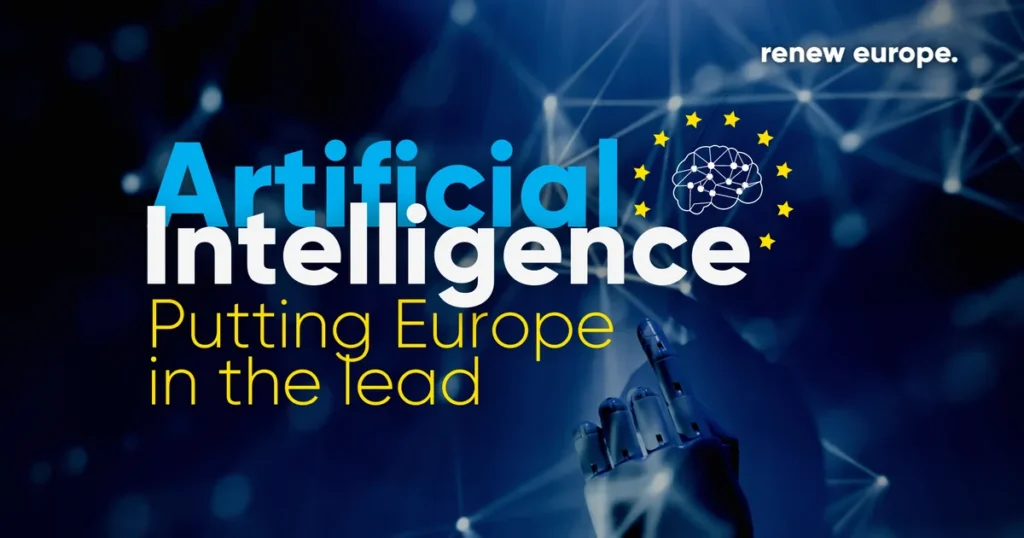The EU’s Landmark AI Act hailed as the world’s first comprehensive AI law, is designed to mitigate risks to health, safety, and fundamental rights. It goes beyond the conventional scope by addressing potential threats to democracy, the rule of law, and environmental protection. While most AI systems pose minimal risks, the AI Act focuses on regulating those that may lead to undesirable outcomes.

Stringent Measures for Systemic Risks
The legislation distinguishes general-purpose AI models that can integrate into various systems. Stringent requirements are set for models deemed capable of posing systemic risks. A dedicated AI Office within the Commission will oversee the enforcement of these rules, collaborating with national market surveillance authorities. The framework applies to both public and private actors, becoming fully applicable 24 months after entry into force, with earlier implementation for general-purpose AI models after 12 months.
Strasbourg’s Committee on Artificial Intelligence
Simultaneously, in Strasbourg, the Council of Europe’s Committee on Artificial Intelligence (CAI) completed the second reading of a draft convention on AI. This framework convention discussed extensively during the 8th CAI plenary meeting, aims to create a legal framework for AI with global reach.

EU’s Proactive Role in Negotiations
The EU has actively participated in the convention negotiations since January 2023, emphasizing the need for a convention covering AI systems impacting human rights, democracy, and the rule of law. The EU’s approach seeks flexibility in implementation for global applicability while ensuring the compatibility of the international instrument with existing EU law and the recently established AI Act.
Compromise Text and Future Discussions
Despite preliminary agreement on many articles, the scope of the convention remained a key discussion point. Negotiating parties opted to defer discussions on this crucial aspect to the next CAI Plenary in January. The revised timeline anticipates finalizing the convention in March 2024, with formal adoption in May 2024, coinciding with the 75th anniversary of the Council of Europe.

EU’s Commitment and Approach
The EU’s commitment to meaningful AI regulation is evident in its active participation, aligning the convention with existing EU law and the AI Act. This approach not only aims for global applicability but also seeks to ensure that the convention contributes to a robust international legal framework for AI.
Objective: Safeguarding Fundamental Rights
The overarching objective is clear: to regulate AI systems that could impact fundamental rights, irrespective of whether developed or deployed by public or private entities. This forward-looking approach emphasizes the importance of AI regulation in preserving the core values of democracy, human rights, and the rule of law.

The EU’s Landmark AI Act Paves the Way for Global Regulation
The week of 5-8 December 2023 will be remembered as a pivotal moment in AI regulation. With the EU’s historic AI Act and the ongoing efforts of the Council of Europe’s Committee on Artificial Intelligence, the global community is taking significant strides towards establishing a comprehensive and impactful legal framework for AI.
Article by Lea Koettering – Artificial Intelligence Policy Development and Coordination (CNECT.DDG1.A.2)
Source: European External Action Service
For more latest trendy news like this visit our Latest News page. Please visit our Contact Us page in the footer menu to contact us. For various needy offers and deals of the day you can check out our Best Deals page. To know more about us visit the About Us page in the footer menu. You can also read our Disclaimer, Affiliate Disclosure and FAQs page located in the footer menu. You can also find the Webstory Page in the footer menu to see our latest published web stories.
FAQs
1. What is the AI Act, and how does it differ from previous AI regulations?
The AI Act is the world’s first comprehensive AI law, addressing risks to health, safety, and fundamental rights. It goes beyond traditional regulations by focusing on potential threats to democracy and environmental protection.
2. How will the AI Office within the Commission enforce the rules on general-purpose AI models?
The AI Office will collaborate with national market surveillance authorities to ensure the enforcement of rules. General-purpose AI models face more stringent requirements, with the framework becoming fully applicable 24 months after entry into force.
3. What is the significance of the Council of Europe’s Committee on Artificial Intelligence (CAI)?
CAI is instrumental in developing a framework convention on AI. This convention aims to establish a legal framework with global reach, addressing the impact of AI on human rights, democracy, and the rule of law.
4. Why was the scope of the convention a key point of discussion during negotiations?
The negotiating parties deferred discussions on the scope of the convention to ensure comprehensive deliberation. The scope will be a focal point during the next CAI Plenary in January.
5. How does the EU’s approach ensure the convention’s compatibility with existing laws and the AI Act?
The EU actively participates in negotiations, aiming for a convention aligned with existing EU law and the recently enacted AI Act. This approach ensures coherence and compatibility with established legal frameworks.

